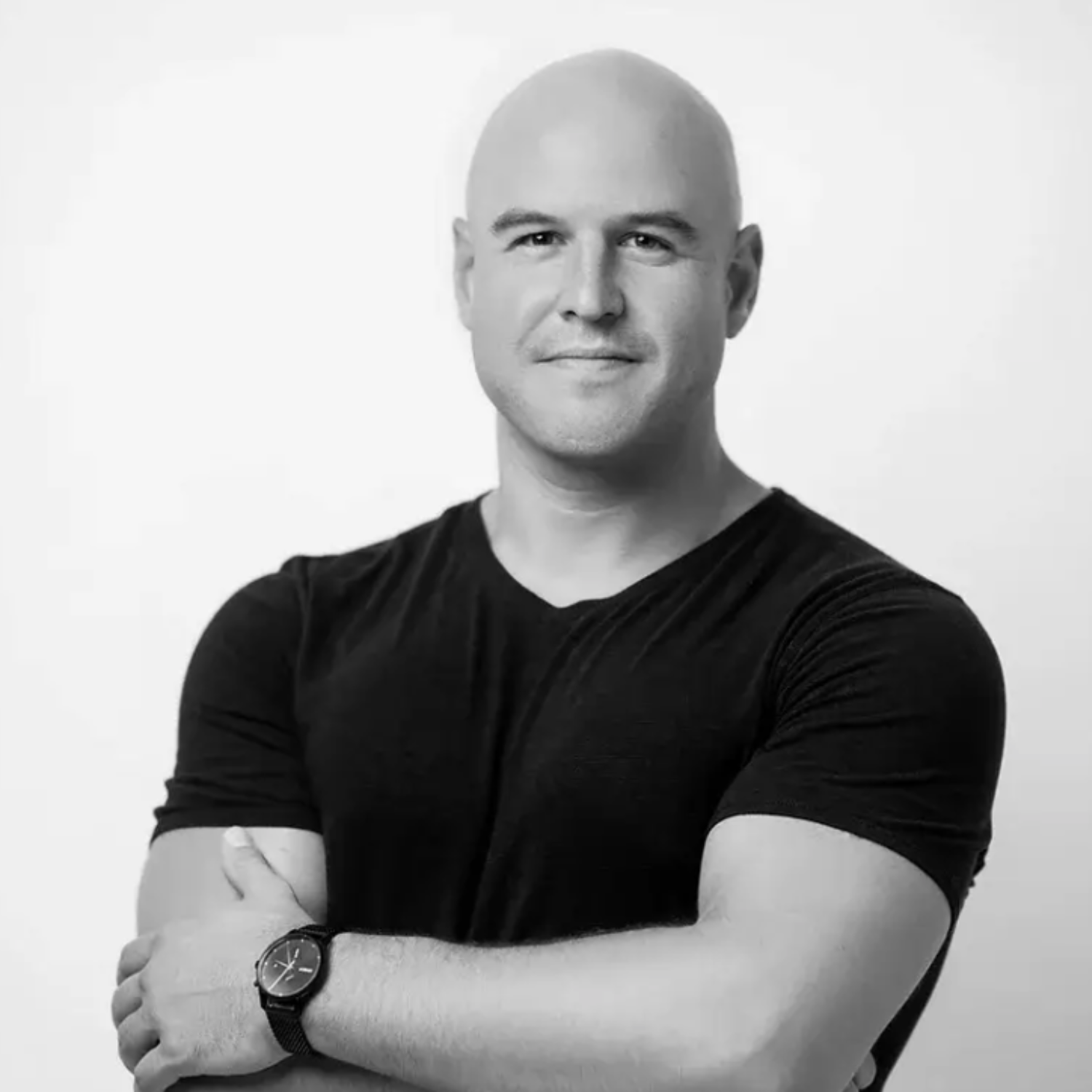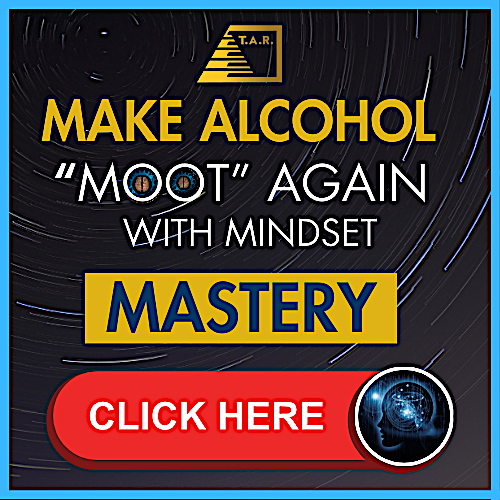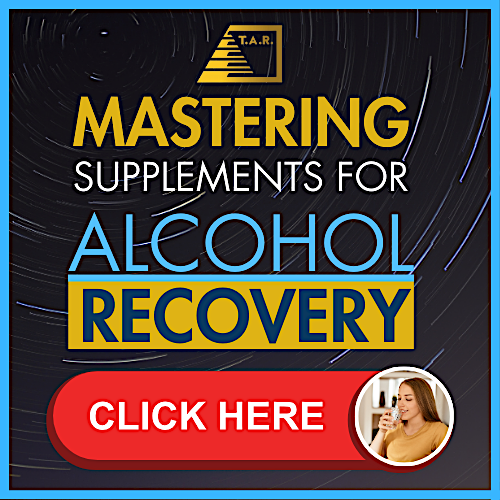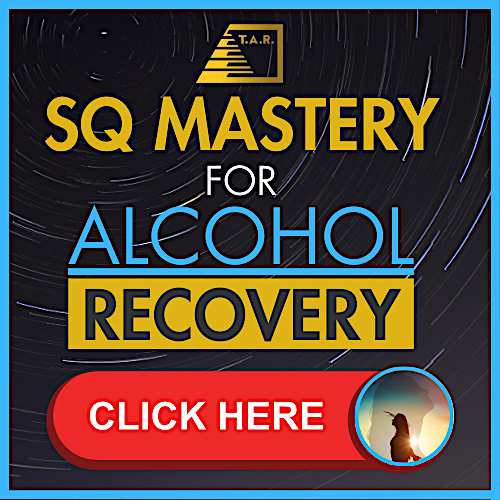Video Transcription
[Start of Audio] [00:00]
Hey guys, Chris Scott here. In today’s short video I want to talk about something I call the Hierarchy of Recovery.
I want to discuss how it can help you quit drinking by helping you to re-conceptualize what you’re doing and figure out which things to focus on first.
Before I begin, I’ll say that this hierarchy is loosely adapted from something called the Maslow’s Hierarchy of Needs, which has been around for decades.
Basically, it’s a pyramid with the most important – or most fundamental, or most urgent – needs at the bottom and the higher order, but less urgent needs at the top.
It aims to describe the fundamental human needs of every one. Of the human condition, basically.
At the bottom are your biological needs such as water and shelter.
Then you have needs such as physical safety, social belonging, and self esteem.
And then finally at the very top you have self-actualization.
Addiction As A Bio-Psycho-Social-Spiritual Disorder
The premise is that in order to get to self-actualization, you have to focus on those more fundamental, lower order needs such as food and water.
It seems pretty obvious. In order to become successful, you’re going to need to make sure that you have breakfast every day.
But for some reason in recovery and traditional programs, people tend to jump straight to the top to the spiritual development while ignoring some very important things that can be done with biochemical restoration and even basic psychology.
I often say which is that alcohol addiction is primarily a biochemical disorder.
That’s why Biochemistry is in the bottom pillar here. It’s at the bottom rung of this pyramid.
Then [the pillars above that are] Psychology, Social, Spiritual, and then I have at the very top “Transcend Alcohol.”
The goal of recovery is to transcend your drug of choice or alcohol.
My premise here is that even though alcohol addiction is primarily a biochemical disorder, it’s also a Bio-Psycho-Social-Spiritual disorder.
As far as I know, the term “Bio-Psycho-Social-Spiritual” was devised by Dr. Amen, who is a famous psychiatrist who runs a program where he takes brain scans for people with behavioral disorders.
People will go in with suicidal or even homicidal thoughts and he’ll find a brain tumor or he’ll find a serious nutrient deficiency or something else that’s off hormonally. He looks at this basic hierarchy.
So, if their biochemistry is fine, he’ll look to see what’s going on psychologically.
If that’s fine, he’ll looked to see what’s going on in their social lives.
The tippy-top is spiritual development.
If I injected you with methamphetamines, or even natural adrenaline, and then I said go sit in an AA meeting and work on your spirituality, you wouldn’t be able to do it. Because that lower-order need of biochemical stability has not been met.
How To Work Up The Recovery Hierarchy
Here are the things that I found to be most helpful in working up this pyramid.
For biochemical restoration, supplements, diet, exercise, sleep and meditation are especially helpful.
I include meditation [in the biochemical pillar]. You think of it as a spiritual activity, but there’s research now showing that meditation actually changes the brain. It can help facilitate neuroplasticity. It can help create new neural pathways that can decrease impulsive behavior. You’re causing physical changes.
So yes, there’s some overlap here. Exercise can be a deeply spiritual thing. Exercise can also be a social thing when you do it with friends. Of course there’s overlap, but the purpose is to endow some structure into your recovery program.
Once your biochemistry is stabilized, you’re going to want to work on your psychology.
Despite the prevalence of talk therapy in mainstream recovery, there’s not a lot of work done in giving people new beliefs about alcohol or about themselves in terms of having a new identity.
There’s not a lot of emphasis put on building new neural pathways. When I say “build new neural pathways”, I mean that we want to have new alternatives to alcohol and new routines.
A new alternative might be exercise or it could be some passion or lost obsession from childhood that you’re going to start doing on a regular basis that your brain is going to start anticipating [instead of] alcohol.
You want to make sure that you have order and stability in your daily routine. You want to try to get up at around the same time every day. You want to try to have a morning routine that’s pretty reliable. You want to try to have a nighttime routine that’s pretty reliable. You want to try to get a sweat in every day.
When you do those things, you’re changing your biochemistry of course, but you’re also changing your psychology by building these new thought patterns; these new thought processes; these new neural pathways that eventually take the place of and dissolve that drinking neural pathway that’s been dominating your life for as long as you’ve been addicted to alcohol.
So of course, it’s also important because we are social creatures to stabilize our social lives.
Mainstream recovery says to have a sponsor and have “sober buddies.” I never embraced that strategy to be honest. I’m sure it’s worked for some.
But I found that it was more important to have a few confidants; very good friends and family members whom I could tell anything and who were kind of cheerleaders for me as my transformation got better and better.
Real friends, instead of just numerous acquaintances who are all basically drinking buddies.
Genuine relationships for me have always been more important than so-called sober buddies who kind of come and go because 90% of them relapse.
So we stabilize our biochemistry and psychology and then we start to build a new social life.
Maybe we were lucky enough to have good friends all along, and just kind of rediscovered those relationships.
We can then start working on our spiritual transformation.
That takes different forms for many people.
I’ve had private clients, some of whom are Christian, who’ve joined Christian support groups and you know worked on their spirituality in the context of religion.
I’ve had some people who get into yoga and Buddhism. Whatever works for you.
You want to be building a new identity, and have a new sense of who you are in the world, and of your place in the universe.
With all of this taken care, you can then finally get to the point where you transcend alcohol.
How To Transcend Alcohol Forever
Honestly, I think the most appalling thing about mainstream recovery programs – despite the good intentions of the people who work for those programs and rehab centers – is that there’s zero emphasis on actually transcending alcohol because everything they’re doing revolves around avoiding alcohol.
This means they’re focusing on a negative.
In order for you to not be focusing on a negative, you need to be focusing on positives.
Build your body back up. Build yourself up. Find new beliefs.
You need to have new experiences with a new mindset that prove to you that those beliefs are actually more valid than the old ones, so you no longer crave alcohol.
You need to have a new social life and forge a new identity.
If you don’t have a sense of purpose, get one!
All of this taken together will allow you to finally transcend alcohol and start living that life that you always knew deep in your mind you were born to live.
Obviously, no one’s ever going to perfect everything [in this hierarchy].
I’m an amateur biohacker, basically, because I’m always tinkering with supplements, my diet, trying new things.
Fasting is something I’ve been experimenting recently.
I’m a little bit sweaty right now because I just did some sprints.
But I’m always tinkering with things. I’m tinkering with my beliefs too. I’m reading new books.
Every night I read. Not a whole book, but I read. I’m tinkering with all of this stuff.
[It’s important to] find your purpose in life, but something that’s recently occurred to me is that we don’t necessarily have the same identity our entire lives.
We don’t necessarily have the same purpose, but we do want to strengthen our sense of having a positive identity that is consistent with our belief system, society and our place in the cosmos, so to speak.
I wanted to keep this short.
Once again, this is only my second video that I will succeed in talking for less than 10 minutes.
So, hopefully you enjoyed it and if you did please give me a thumbs up and stay tuned for more!
Thanks so much for watching!
[End of Audio] [9:17]
Author
-
A decade+ addiction-free, Chris Scott, the visionary founder of Fit Recovery, passionately guides Fit Recovery 2.0 Members toward a vibrant, healthier lifestyle. Through the integration of groundbreaking nutritional strategies, transformative reframing techniques, neurolinguistic programming, and dynamic pro-recovery habit systems, he inspires individuals to boldly take charge of their lives and break free from alcohol. Chris is celebrated as a Professional Member of the Alliance For Addiction Solutions. Moreover, he is the proud author of the bestselling book "Drinking Sucks!" which stands as a vital beacon of hope for those yearning to quit drinking. Additionally, he created the celebrated online program Fit Recovery 2.0, designed to provide unwavering support for individuals embarking on their recovery journey.
View all posts Fit Recovery Founder & Director











Great post! I couldn’t agree more about the need to transcend, not just avoid alcohol. I’d say that it is also appalling that so many mainstream recovery programs don’t deal at all with the biological part. I was told years ago that if I had to choose between a workout and an AA meeting, to go to the meeting. That just never made any sense to me.
Thank you RMV
Hi Chris, Thanks for making the readable transcript available as well as the video. Sometimes i need to keep my sound down. I’ve read a good number of your articles and their comments in this past week, and gained quite a useful education, as well as a strengthened inner sense of encouragement, above and beyond so much research I’ve done in recent months. Your article about the kindling effect, for instance, was a real eye-opener. I already knew i don’t ever want to need to quit drinking again, but adding this awful risk to my list makes my resolve that… Read more »
Great comment! I’m glad this video was helpful for you.